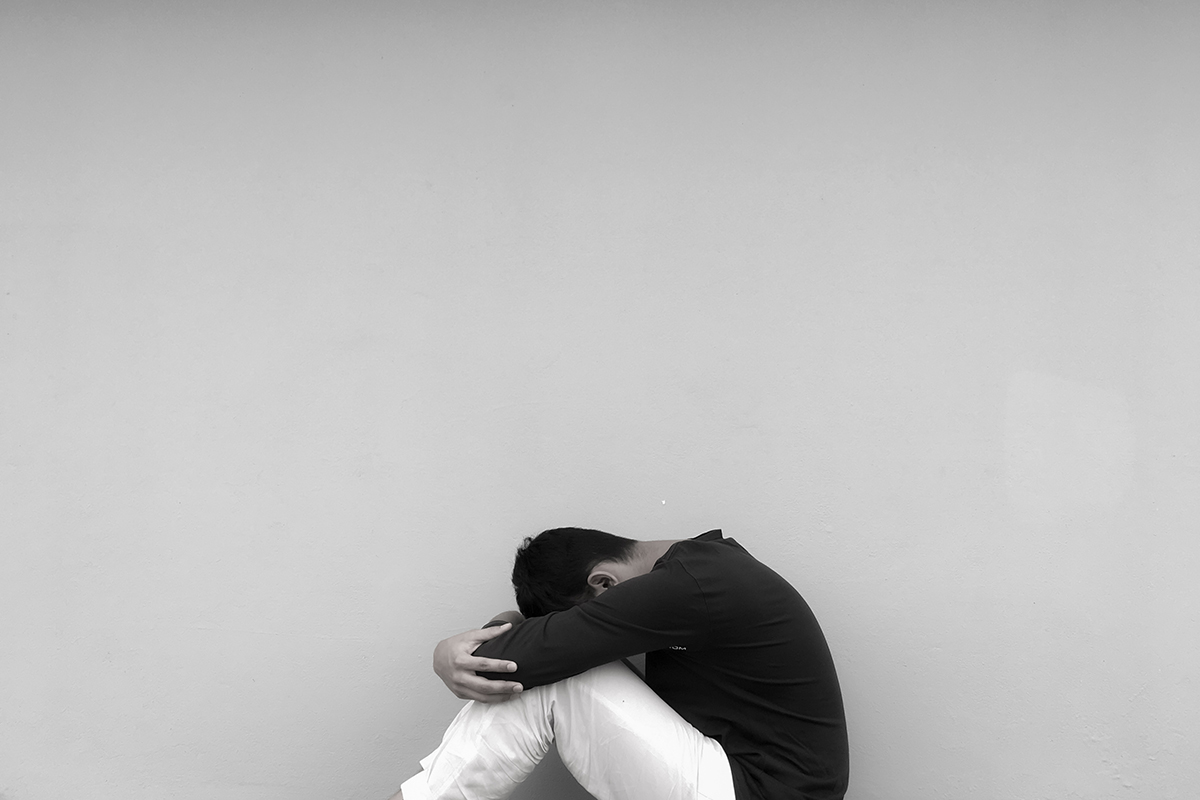
Depression: Causes, Symptoms, and Treatment Part I
Depression: Causes, Symptoms, and Treatment – Part I of III
Depression: What’s it all about?
By
Ari Goldstein, Ph.D. Educational Psychologist
“I have had issues with depression all my life, and it’s probably true to say there was a tendency towards it even when I was very young, during my schooldays. There was often – and this is quite common with comics – a sense of not feeling as if I belonged anywhere.”
– Jack Dee
“Every man has his secret sorrows which the world knows not; and often times we call a man cold when he is only sad.”
– Henry Wadsworth Longfellow
“If what I feel were equally distributed to the whole human family, there would not be one cheerful face on the earth. Whether I shall ever be better, I cannot tell.”
– Abraham Lincoln
“It’s so difficult to describe [depression] to someone who’s never been there, because it’s not sadness. But it’s that cold absence of feeling — that really hollowed-out feeling.”
– J.K. Rowling
If any of the feelings described above sound all too familiar, you may at some point in your life experienced a form of depression. As you can see, you’re not alone. Presidents, poets, best-selling authors and even comedians have been depressed, too.
More than 15 million Americans over the age of 18 suffer from depression every year.
According to the National Institute of Mental Health, “Depression is a common but serious illness, and most who experience it need treatment to get better.” Although 80 percent of people treated for depression experience relief within four to six weeks, two-thirds of those who need treatment never get it. This is no doubt a factor in suicide being the second leading cause of death among Americans between the ages of 15 and 44.
The American Psychiatric Association has defined three major types of depression.
In the Diagnostic and Statistical Manual of Mental Disorders (DSM), the APA describes three categories of depression all of which involve the following combination of symptoms to a greater or less degree:
– Trouble sleeping or excessive sleeping
– A dramatic change in appetite, often with weight gain or loss
– Fatigue and lack of energy
– Feelings of worthlessness, self-hate, and inappropriate guilt
– Extreme difficulty concentrating
– Agitation, restlessness, and irritability
– Inactivity and withdrawal from usual activities
– Feelings of hopelessness and helplessness
– Recurring thoughts of death or suicide
• Major Depressive Disorder or Clinical Depression – the patient feels sad and lacks interest in previously pleasurable activities. This mood lasts almost all day, every day for two
weeks or longer while the patient suffers from four or more of the symptoms mentioned above.
• Persistent Depressive Disorder (PDD) or Dysthymia – the patient experiences persistent depression for two or more years although, in some cases, sadness may seem to lift for a time.
Still, he or she is in an almost constantly depressed mood and experiences decreased appetite, low energy, lack of self-esteem, sleep problems and a feeling of hopelessness.
• Manic Depression (also called Bipolar Disorder) – the patient’s mood swings between two extremes – depression and mania. In some cases, the mania phase is dominant and felt as either
euphoria or irritability. Manic episodes may last for a week or longer during which time the patient may experience at least three of the symptoms mentioned above. If these symptoms
are severe enough or include psychotic aspects such as hallucinations and delusions, hospitalization may be necessary to prevent the patient from hurting themselves and others.
The causes of depression are as individual as the people who experience it.
Research shows that depression can be caused by genetics, environment, alterations in biochemistry or an illness of mind or body. Recent studies have discovered some structural differences between the brains of some people suffering from depression and those who do not. People who are depressed seem to have a smaller hippocampus than those who are not depressed. Depression sufferers also seem to produce an excessive amount of the stress hormone cortisol. This discovery has led some scientists to theorize that cortisol is toxic to the hippocampus and may affect the hippocampus’ ability to produce Serotonin. Whether or not this is the case, it is clear that depression is a highly complex malady that is influenced by a multitude of factors including:
• Biological Causes
Research seems to indicate people who have a close family member with depression are up to three times more likely to become depressed themselves.4 Studies using twins as subjects
found that if one identical twin was depressed, 76% of the time the other sibling also succumbed.
• Medication
Medication taken for such ailments as high blood pressure, cancer and Parkinson disease can also affect the balance of serotonin in the system. This, in turn, can lead to depression in
patients already coping with these illnesses. In fact, finding out you have a serious illness can be a depression stressor by itself.
• Emotional Trauma
The death of a loved one, divorce and enduring conflict in the home or at work can also push someone over the edge into depression. So can past traumas such as sex abuse or being
assaulted in childhood. Men are particularly susceptible to depression due to a job loss or change in social status that can damage their sense of personal identity and self-worth.
• Life Changes
Even life changes that are anticipated and seemingly desired such as moving into a new home, graduating college or getting married can, in some individuals, trigger a major depression.
Depression differs between generations and genders.
Depression can strike at any age – from infancy to old age. While it is always a devastating condition, there are some differences in how it manifests itself in each sex and age groups. Statistically, depression afflicts women twice as often as men. However, this could be because the condition is often under diagnosed in men and reveals more about our social mores than our medical care. In a society that equates masculinity with self-reliance and emotional self-control, seeking treatment for depression maybe out of sync with social norms. Some men are reluctant to even talk about their emotions let alone admit to feeling overwhelmed by them. Even if a physician does diagnosis a man as depressed, that individual may refuse to accept treatment. Instead, they may try to self-medicate with alcohol and drugs, which not only masks the symptoms of clinical depression but can exacerbate the problem.
Depressed men are more prone to rage and violence than women and may display various uncharacteristic behaviors such as taking risks in their sexual partners or driving too fast. They may use work or sports as an escape from their feelings, becoming overly involved in these activities. Studies also indicate that men seem to think about suicide more frequently than women do.
Women, on the other hand, may be more prone to depression because of biological differences.
At various stages in a woman’s life, her hormones undergo significant changes – preparing for pregnancy, going through pregnancy and finally, facing the end of fertility during menopause. In fact, during every monthly menstrual cycle, most women go through several days of moodiness and physical discomfort often referred to as Premenstrual Syndrome or PMS. A small percentage of women have Premenstrual Dysphoric Disorder (PMDD) in which these symptoms are so excessive they affect the sufferer’s ability to function at work and at home. Of course, not all women become depressed when they menstruate, even if they suffer from PMDD, so these hormonal changes do not necessarily cause depression by themselves. However, research still remains to be done on just what effect estrogen, progesterone and other hormones involved with menstruation have on brain function.
Below is a summary of how women may experience depression during the various phases of their lives:
• Pregnancy
Hormonal changes can contribute to overwhelming sadness even at a time when feelings of happiness are supposed to be the norm. The fact is, pregnancy can be a mixed blessing for many
women in our society. The mother-to-be may fear the pain of delivery or, worse, having a miscarriage. She may lack a support system to help her raise the baby or be dealing with a
failing relationship with the baby’s father. Moreover, even in the best of circumstances, the increased and ongoing responsibilities a woman faces in raising a baby can be a major
stressor.
• Postpartum Depression
Half of all new mothers experience feelings of sadness, anger, and irritability shortly after giving birth. For most women these negative feelings usually dissipate in a week or two
but for some they can become extremely intense and even lead to thoughts of hurting the baby and suicide. This condition is called postpartum depression and it may be due to excessive
fluctuation of hormones along with a genetic tendency to depression. Whatever its cause, it is very serious and needs immediate treatment.
• Menopause
Hormones also play a part in causing depression later in life. In addition to enduring the physical discomfort of hot flashes, older women may feel they are less desirable sexually to
their husbands just as their children are growing up and leaving to start families of their own. These life changes coupled with a fluctuation and drop in estrogen levels can put some
women at greater risk for clinical depression.
Social Pressures may also be why women seem to suffer from depression more than men do.
In our society women are the ultimate multi-taskers and frequently hold down full time jobs while being the primary – sometimes the only – caregiver for young children and/or senior family members. In addition, a woman may have to cope with sexual and physical abuse, not to mention the very real issues of inequality of power, status and compensation in the workplace. Any one of these situations could trigger a depression. Yet all too frequently, a woman may have to deal with two or more of these stressors simultaneously.
Even young children can experience depression.
In the very young, symptoms of depression include crying for no reason and restlessness, while in preschoolers, they may be manifested as irritability and aggression. As children mature, they may experience a sense of apathy, low energy and listlessness at school and even during activities, they usually love. Once adolescence is reached, symptoms tend to resemble those in adults more closely.
Depressed kids aren’t just “acting up.”
In our culture, children are the very symbols of hope and joy so the idea that they experience the hopelessness and alienation of depression seems counter-intuitive. Consequently, parents and teachers may overlook the signs of this illness putting the symptoms down to “kids being kids.” Yet children who are “act outing” and showing anger and aggressiveness may be as depressed as an adult who is acting sad and blue.
There are no special tests to identify depression in youngsters.
If a child exhibits the systems of depression for two weeks or more he or she should be taken to a doctor to make sure they’re not suffering from a physical ailment requiring medication. Once physical causes have been ruled out, a mental health evaluation can be made based on interviews with the child and information from parents, teachers, friends and classmates.
Research continues on the symptoms and causes of depression.
For example, just recently, a research team led by Professor Bernhard Baune, Head of Psychiatry at University of Adelaide reviewed a growing body of evidence indicating that certain types of genes effect the working of the brain and surrounding tissues during depression.5 Their recently published findings not only support multiple theories of the underlying genetic causes of depression, but highlight one gene in particular – PXMP2. PXMP2, which plays a role in breaking down fatty acids in the body and converting them to energy, seems to be expressed during depression. Baune’s team is investigating the link between PXMP2, its function in the metabolism and depression.
“Depression is much more complex than most people think, and it includes dysfunction at multiple biological levels, from genes to brain regions, and blood circulating through the body,” says Professor Baune. “The state of depression can also change over time, it goes through various phases and it may present with a large range of symptoms.” Baune’s research shows support for the wide range of theories that different genes may play a role in depression, including those that regulate serotonin, melatonin and the immune system, among many others. “But,” he claims, “PXMP2 still represents a very strong, new target for future research programs.”
This is, no doubt, just one of many discoveries that will lead us to a better understanding of depression and why it debilitates so many. Next month, we’ll explore the treatment options for depression past, present and future.
References
1 Facts, National Network of Depression Centers, http://www.nndc.org/the-facts/ (2014)
2 “Depression: What You Need to Know,” National Institute of Mental Health, http://www.nimh.nih.gov/health/publications/depression-what-you-need-to-know-12-2015/index.shtml (2016)
3 ”Stressing the Hippocampus: Why It Matters,” http://blogs.scientificamerican.com/news-blog/stressing-the-hippocampus-why-it-ma/ (2008)
4 Katherine Kam, “Depression When it’s all in the Family,” WebMD, http://www.webmd.com/depression/features/depression-when-its-all-in-the-family (2016)
5 “Faulty Gene Linked to Depression and Cardiovascular Disease,” Science Daily, https://www.sciencedaily.com/releases/2016/09/160913115633.htm (Sept. 16, 2016)
Related Posts
What is Neuropsychological Testing for Children, and How Can It Help?
In the realm of mental health and education, cognitive assessments play a pivotal...
Adult Dyslexia Help in Chicago
Adult Dyslexia Cognitive Solutions Learning Center-Chicago, Il. Dyslexia is a...
Can Neurofeedback Replace Stimulant Medications Like Adderall?
Neurofeedback is a type of therapy that uses real-time feedback to train the...
TREATMENT AND THERAPY PROGRAMS FOR LEARNING DISABILITIES, ADD/ADHD, EXECUTIVE FUNCTIONING, ANXIETY, AND DEPRESSION
Our programs are designed to help you reach your full potential! At CSLC we take...





